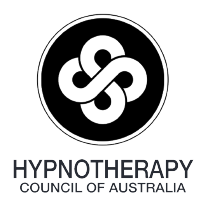
It’s 9pm. You’re not hungry, but the snack cupboard is calling. You reach for the chocolate, the chips, the comfort foods that bring a moment of relief, then the guilt kicks in. This is emotional eating, and it has little to do with willpower or appetite. It’s often a way to soothe stress, boredom, anxiety, or unresolved emotions. That’s why diets rarely work long-term, they don’t address the subconscious patterns driving the behaviour. Hypnosis does.
What Is Emotional Eating, Really?
Emotional eating is using food to:
- Escape uncomfortable emotions (stress, loneliness, frustration)
- Reward yourself or self-soothe
- Avoid boredom or procrastination
- Distract from low self-esteem or body image issues
Over time, these patterns become automatic, forming a strong emotional habit loop that feels impossible to break.
How Hypnosis Breaks the Emotional Eating Loop
Hypnosis works by guiding you into a deeply relaxed, focused state where your subconscious mind is more open to change. From this place, you can begin to:
- Uncover emotional triggers for overeating
- Separate emotions from eating habits
- Install healthier coping strategies
- Rebuild a calmer, more respectful relationship with food
- Visualise success and feel in control again
Rather than just telling yourself “Don’t eat that,” hypnosis helps you feel genuinely disinterested in the foods that once had power over you.
Common Emotional Eating Triggers Hypnosis Can Address
- Stress from work or relationships
- Childhood patterns (e.g., being comforted with food)
- Guilt or shame around food choices
- Reward-based eating (“I’ve had a hard day — I deserve this”)
- Mindless snacking from boredom or fatigue
- Cravings linked to self-worth or body image
Hypnosis helps you pause between emotion and action — giving you back choice.
Why Hypnosis Is Different From Diets or Willpower
Most approaches focus on external control: calorie tracking, meal plans, “good vs bad” foods. But emotional eating lives in the subconscious mind. That’s where change needs to happen and hypnosis gets you there. With hypnosis, you’re not relying on constant discipline. Instead, your natural preferences and habits start to shift, making healthy choices easier and more instinctive.
Real Results Clients Experience
Clients who use hypnosis to manage emotional eating often report:
- Fewer and less intense cravings
- Greater control over portion sizes
- Improved body trust and self-awareness
- Reduced guilt and emotional spiral around food
- Sustainable weight management without extreme dieting
- A calmer, more balanced mindset around food
Who Can Benefit From Hypnosis for Emotional Eating?
You may benefit if:
- You eat when you’re not physically hungry
- You feel out of control around certain foods
- You’ve tried multiple diets without long-term success
- You use food to cope with stress or emotions
- You’re ready to feel empowered, not restricted
Rewire Your Relationship with Food
Hypnosis is not about deprivation — it’s about freedom.
Freedom from the emotional hold food has on you.
Freedom to eat with intention instead of impulse.
Freedom to nourish your body and mind without guilt.
Explore More Ways Hypnosis Can Help:
6 Powerful Ways Hypnotherapy Can Improve Your Life
Hypnosis for Anxiety and Overthinking
What Is Modern Hypnosis?
Can hypnosis stop my cravings completely?
Hypnosis often reduces both the frequency and intensity of cravings by addressing the emotional triggers underneath. While no approach eliminates all urges, hypnosis can shift how you respond, making cravings easier to manage.
Will I lose weight with hypnosis?
Many people experience weight loss as a natural side effect of changing their relationship with food. Hypnosis focuses on sustainable habits and emotional balance rather than short-term results.
What if I’ve struggled with binge eating for years?
Hypnosis can help even with long-standing eating patterns by working directly with your subconscious beliefs and emotional drivers. It’s never too late to retrain your mind.
Do I need to be in a deep trance for it to work?
Not at all. Modern hypnosis is gentle and conversational, you’ll remain relaxed but aware the whole time. The power comes from focused suggestion, not mind control.
Is hypnosis safe for people with eating disorders?
If you have a diagnosed eating disorder, hypnosis can be a supportive tool, but it should be used in conjunction with professional medical or psychological care. Always speak to your health provider first.
How quickly will I notice changes?
Some clients feel more in control after just one session. For long-term results, a few sessions combined with simple daily mindset practices can create lasting change.




